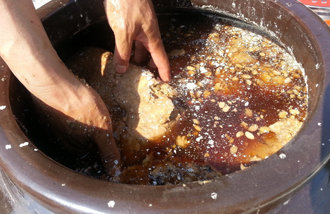Improving the THAAD system
Improving the THAAD system
Posted February. 17, 2020 07:46,
Updated February. 17, 2020 07:46
Former U.S. Forces Korea Commander Vincent Brooks said separating Terminal High Altitude Area Defense (THAAD) launchers from their battery has been reviewed since 2017 when it was deployed in Seongju, North Gyeongsang Province. "If you can separate the launchers away from the battery that gives you a lot of flexibility on the Korean Peninsula,” said Vice Admiral John A. Hill, director of the Missile Defense Agency under the Department of Defense. Brooks suggested that the Pentagon is soon to improve the THAAD system.
The THAAD system was deployed for medium- to long-range missile defense against North Korea. But the longest range of missile interception is 200 kilometers, which makes it difficult to defend the Seoul metropolitan area or even the U.S. army base in Osan from Seongju. The U.S. explains that the THAAD radar can improve efficiency of defense when it operates with six launchers. South Korea can expand the scope of defense to main strategic points by moving launchers when necessary. It can work along with the Patriot Advanced Capability (PAC-3) missile to form a dual safety net. The PAC-3 missile can defend the lower part while the THAAD system defends the upper part.
The system needs to be improved as North Korea’s nuclear missile capability keeps evolving. The North has been developing the intercontinental ballistic missile Hwasong-14 and the North Korean version Iskander KN-23 missile that changes trajectories. As Pyongyang announced to showcase a new strategic weapon early this year and continues on with its threats, Seoul needs to keep improving its defense capabilities.
China would disagree with improving the THAAD capabilities. Keeping the firm stance that does not allow China to meddle in the national defense issue will reduce unnecessary commotions. South Korea and the U.S. should strategically respond to the groups opposing to the THAAD system to prevent division of national unity.
Young-Sik Kim spear@donga.com
Headline News
- Security strengthened at residences of U.S. presidential candidates
- Late-night announcement issued on Pres. Yoon’s public address
- Green Belt in Seoul to be released in 12 years
- Meta fined 20 billion won for illegally collecting sensitive information
- Culture Ministry calls for severe disciplinary action against KFA chair






